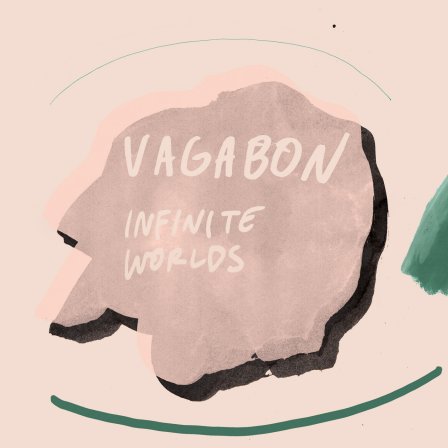There’s a knot of black scaffold unfolding in the intake of Atlantic air that slaps against the side of the building at odd cold intervals, heaves of breath, echolocations giving nothing back. A scaffold means construction, a banging means wind, an echo means empty.
Even empty, the good shore towns don’t die entirely in winter. The good shore towns breathe like the harbor seals that sometimes wash up on their shores, drawing reserve oxygen from blood and redistributing it to the places that really need it: the flippers, the brain, the heart. Harbor seals survive by refocusing. The good shore towns and the places intent on surviving winter refocus energies. Ice falls on salt water and leagues feel too deep, but seals persevere in the cold quiet, dive deeper, surface with a fish.
We came to this place under construction and scaffolding because we can’t shake that together-loneliness of what winter in 2017 feels like. I look at you and get salve heat, the current to live by, the reason to tread; I look at the world and I feel my eyes grey, worry how ice forms above me, afraid that a thaw isn’t inherent, afraid that love isn’t enough to resist. How do we reconcile people and worlds, heat with cold? At the aquarium under construction, I look at you. You look at the window and the 30,000-gallon tank of salted water behind it and “I feel so small; my feet can barely touch the floor.” How do we reprioritize oxygen for survival?
Survival means engagement, sounds like resolving to sing instead of resigning to silence. In a 2017 winter where silence is intolerable, the first sound of Infinite Worlds is the voice singing “I.” “I” precedes the guitars (sharp like sharks, fit for biting back) and drums (expansive concussive like white water crashing on sand) and syllables (like legends) and songs (like love). “I” is Laetitia Tamko’s thesis for survival.
“I feel so small — my feet can barely touch the floor/ On the bus where everybody is tall” is the couplet of “The Embers,” the best first sentence for Vagabon’s space-self thesis, Infinite Worlds. Like the rest of the long player, “The Embers” is culled from demo and memory, an old composition (it was “Sharks” on 2014’s Persian Garden EP) that doesn’t get rewritten so much as it gets reasserted. In 2017, in light of recent memory, art must be repurposed. Self must be reasserted in scope. “You’re a shark that eats every fish/ And I’m just a small fish,” Lætitia warns. Infinite Worlds means possibilities, means time for worry and winter. Remember what happened and where you are. Slingshot and swim. Breathe.
How many times have we reminded each other to breathe? That time in a parking lot in Bordentown, New Jersey, that time before we walked out onto that stage in Pennsylvania? The stampede of kids’ sneakers (Is it President’s Day? Is that why they’re here? President’s Day is an angry reminder.) is damped by focusing on the hum of aquarium bubbles, the thub and thromb of “Mal a L’aise,” Infinite Worlds’s intermissive electronic composition. In front of the aquarium window, I think about you and worry I think about Vagabon and Infinite Worlds, because I’m still not writing about it yet. “I’ve been hiding in the smallest space,” I think, which is maybe not making the thing, writing the words. Hearts are heavy unengaged; how do we mobilize biology for engagement?
Engagement moves, more time for I, more space to cross: “I’ve been hiding in the smallest space/ I am dying to go, this is not my home.” “Fear and Force” is the second song, the arpeggiated heart of Infinite Worlds. Frankie Cosmos kisses the corners of the chorus, help from a friend, even when Lætitia and I both worry we’re losing someone. “Fear and Force” feels good, especially when Lætitia gets loud, those sharkteeth guitars cutting through midsong body. It’s working through choosing, a letter in loving and learning to live in the space with/out someone (“Freddie, come back/ I know you love Vermont but I thought I had more time”). By condensing the mileage between composition and relation and location, Lætitia leans into what Frank O’Hara clowned as personism (“The poem is at last between two persons instead of two pages.”). At its best center, Infinite Worlds gives the song back to the person. Despair is stationary: at our best, we move.
Then it’s “Minneapolis,” more moving through geographies, loud and drummy, hooked on songs like the city’s duet Saints Westerberg and Prince. Lætitia still wants to stay, still wants to go (“It was never the same/ I can’t go back to the place where I once was”) — home is as long as the song, the way we watch a shark, the way we hear a love. When you’re wandering through an aquarium in February because you came to an aquarium in February because you don’t know, all the exhibits are reminders of not knowing how worlds work: what do we get from looking at fish and what can we see from listening to songs? What will this warping world feel like tomorrow? How will we reorganize blood for opposition?
“I won’t go,” I say, and “I won’t go,” you say, and we’re finding us at the center, finding opposition in the kernel of relating. “It’s like worrying,” sings Frank O’Hara, “that comes true and it simply must not be able to happen/ In a world where you are possible/ My love nothing can go wrong for us, tell me.” We’re possibilities again and always, love like the way a Gulf Stream circulates a globe, like the way “100 Years” proposes resolution as the best resistance to world bent on freezing over. “I won’t go,” sings Lætitia, the loud of drum and guitar an assertion of unshrinking, the admission that “If we stick around, they won’t know.” Infinite Worlds and the way we look at fish and songs means that existing and resisting are the same thing. Silence is oblivion when singing means surviving.
There’s a splash in the space above the 30,000-gallon tank and a shockcloud of bubbles in the space in front of our aquarium glass and your eyes are wide like the edges of “Cold Apartment,” a lament for what gets lost and found when a body re-centers, when a self jumps in the water. I blink back from Vagabon and look for the origin of the splash and noise in front of us and, of course, it’s a harbor seal, back from gulping air at the surface above us. Like the good songs and like Lætitia, harbor seals are constantly refocusing energies, drawing reserve oxygen from blood and redistributing it to the places that really need it: the flippers, the brain, the heart. Songs and you and I survive by refocusing.
I is where we started, I is where Lætitia centers on Infinite Worlds, and by putting us all in this sentence together, I realize that maybe that’s how we refocus. The people and the fish in this aquarium have to weather offseasons and reconstructions and what feels like a world gone wrong. There are sharks that eat every fish, and there are winds that seek to lay ice on us all. No one will chip it away; we must kick it off ourselves: “I’d stand strong, my feet will drag on/ My odor will linger and it’s something they will long for.” When I can’t tease out a meaning, I look at you and I stand strong, reminded by Vagabon’s “Cleaning House,” “You will raise your voice and talk aloud.” In love, we lift each other up, reconstruct our selves in scaffolds for resistance. Opposition, like Lætitia’s voice and our aquarium-relating and Frank O’ Hara’s personism “occurs in the minute particulars where decision is necessary.” Survival is asserting our deciding, our identity is our agency. There are simple and unknowable truths to living in this time: I feel small, I miss you, I love you, I resolve, I resist. When the songs are given back to the people, not-knowing sounds like love and revolution. Breathe.
More about: Vagabon


